Skift (a leading travel industry news platform) released its megatrends forecast for 2025. Looking at these predictions, one can clearly see signals of a fundamental shift in how travel products are distributed, purchased, and experienced.
What is particularly striking is that many of these trends depend heavily on the technological capabilities that traditional travel infrastructure struggles to provide – real-time inventory management, trustless business relationships, instant cross-border settlements, and seamless identity verification. These are precisely the challenges that the web3 travel ecosystem is designed to solve.
In this article, we will explain how Camino Network provides a solid technological base for these megatrends and business models to emerge.
For many travel professionals, 2023's Taylor Swift Eras Tour served more like a cold shower than just another concert series. When a single artist's tour generated $2.1 Billion in ticket sales around five continents, shifted travel patterns in 70+ cities, and caused hotel occupancy spikes comparable to major sporting events, it highlighted something crucial.
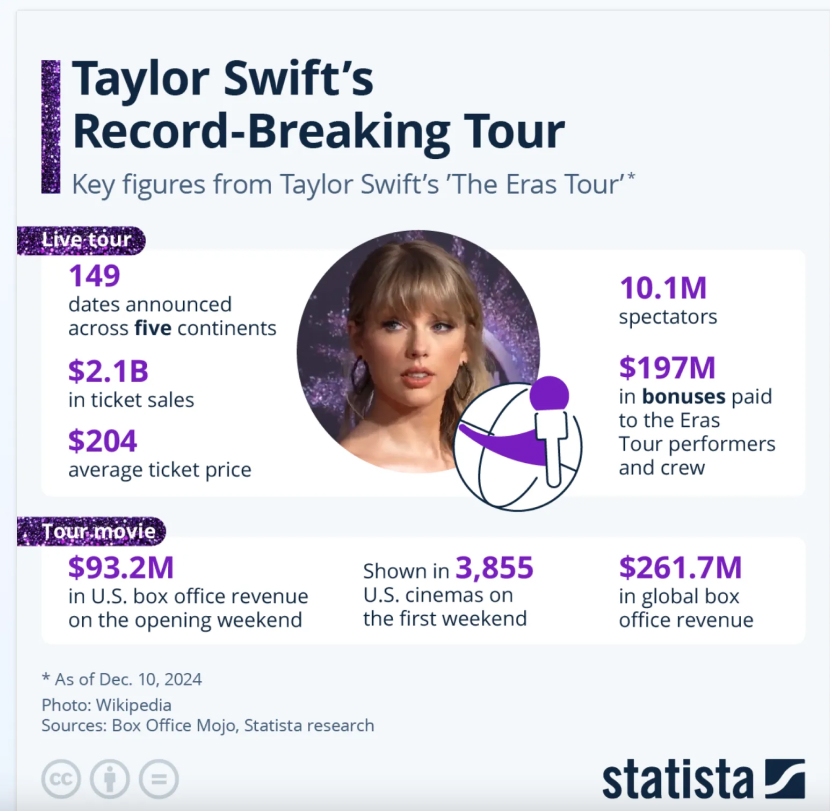
Source: Statista
The numbers tell a compelling story. Concert-driven tourism in 2023 saw average booking values 320% higher than standard leisure trips. Hotels within a 2.5-mile radius of venues reported 200%+ rate increases and flight searches spiked by 175% within hours of concert announcements. More significantly, 84% of these travelers booked additional experiences in their destination cities, creating a ripple effect across the entire travel ecosystem.
We are witnessing a fundamental shift in travel distribution dynamics. Individual entities – be they artists, creators, or digital communities – are becoming powerful demand aggregators. In 2024, 47% of millennial travelers reported that their trip planning started not with a destination search but with content from specific creators or events. The traditional funnel of "destination first, activities second" is inverting.
With the average travel booking still touching 10+ separate systems, creating numerous different data entries, and involving multiple payment flows, digital transformation becomes a survival imperative. Just as retail adapted to social commerce and banking to digital payments, travel technology must evolve to meet new demands, megatrends, and behaviors.
Following the example above, we can see that despite the fact that literally everything can be accessed virtually, it is the in-real-life-only moments that drive people to travel a lot. From mega concerts to meteor showers, from gaming championships to cultural festivals – these events drive huge traffic around the world.
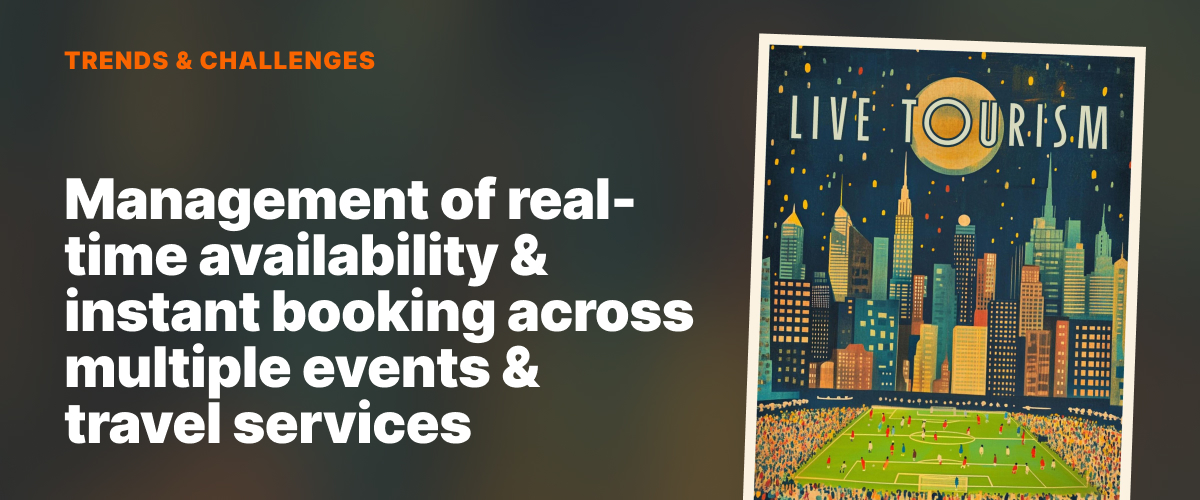
The industry data confirms this shift: over two-thirds of travelers are now willing to spend more on trips devoted to entertainment, sports, or cultural activities. This trend reshapes how travel products are distributed, bundled, and sold, creating new technical challenges for the industry.
| Current travel tech gaps | Blockchain solutions |
|---|---|
| 📊 Lack of real-time capacity management across multiple venues/events | Smart contracts for automated event ticket distribution and validation |
| 🔗 Limited integration between event organizers and travel services | Decentralized identity systems for secure ticket transfers |
| 🌐 Fragmented ticketing systems across different countries | Cross-border payment solutions with minimal fees |
| 🛡️ Risk of fraud in secondary ticket markets | NFT-based ticketing to prevent counterfeiting and enable secure resale |
Travel distribution is also experiencing a fundamental shift as social media influencers evolve from inspiration sources to actual sales channels. What started as beautiful Instagram pictures has transformed into a serious business channel with measurable ROI and significant booking volumes.

This new distribution model requires new technical capabilities – from tracking attribution to managing cross-border payments and verifying authentic recommendations.
| Current travel tech gaps | Blockchain solutions |
|---|---|
| 💰 Influencer-Driven Travel | No standardized commission tracking system |
| 🔍 Limited transparency in influencer-booking relationships | Transparent tracking of referrals and bookings |
| 🌐 Complex cross-border payment settlements for commissions | Immutable verification of influencer credentials and performance |
| ✅ Difficulty verifying authentic reviews/recommendations | Tokenized reward systems for authentic reviews |
The hotel industry is undergoing a fundamental shift in its revenue model. Following the airlines' success with ancillary revenue (which now accounts for over 15% of airline income), hotels are expanding into selling experiences, services, and amenities beyond traditional room bookings.
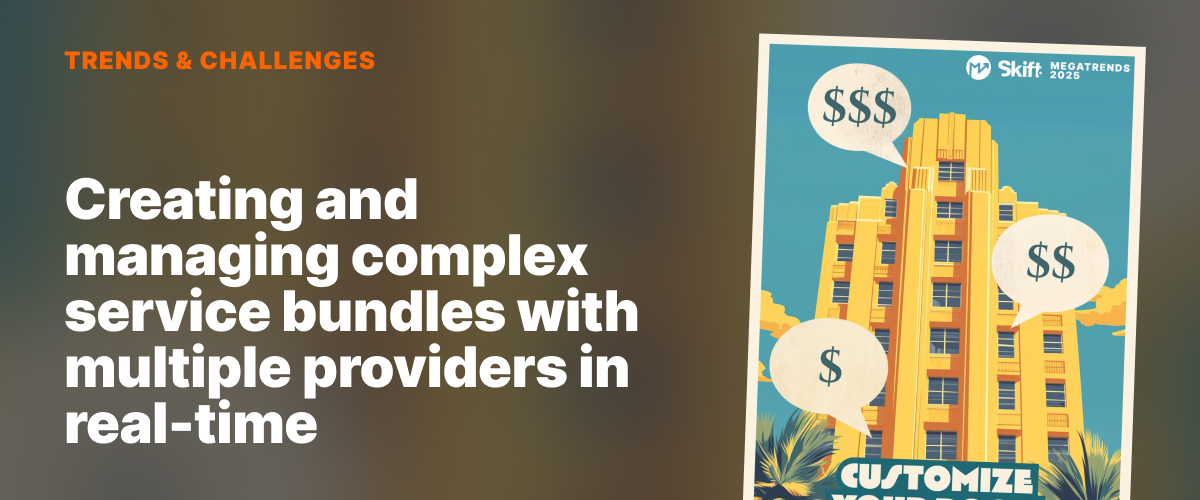
From spa treatments to local tours, workspace rentals to specialty dining experiences – hotels are transforming into comprehensive lifestyle hubs. This shift is driven by consumer demand for more integrated travel experiences and the need to maximize revenue per guest, especially in an era of rising operational costs and increasing competition.
| Current travel tech gaps | Blockchain solutions |
|---|---|
| 🔄 Fragmented booking systems for different services | Smart contracts for automated revenue sharing |
| 🤝 Limited integration with local service providers | Tokenized loyalty programs across service providers |
| 💰 Complex revenue sharing with partners | Decentralized marketplace for local services |
| 📦 Lack of personalized service bundling capabilities | Blockchain-based inventory management for ancillary service |
For the first time in decades, travel search and distribution is experiencing a significant shift away from traditional search engines. With regulators in both the US and EU pushing for more competition in the digital space and the rise of AI-powered discovery tools (AI agents), the travel industry is seeing new opportunities for direct distribution and alternative search channels.
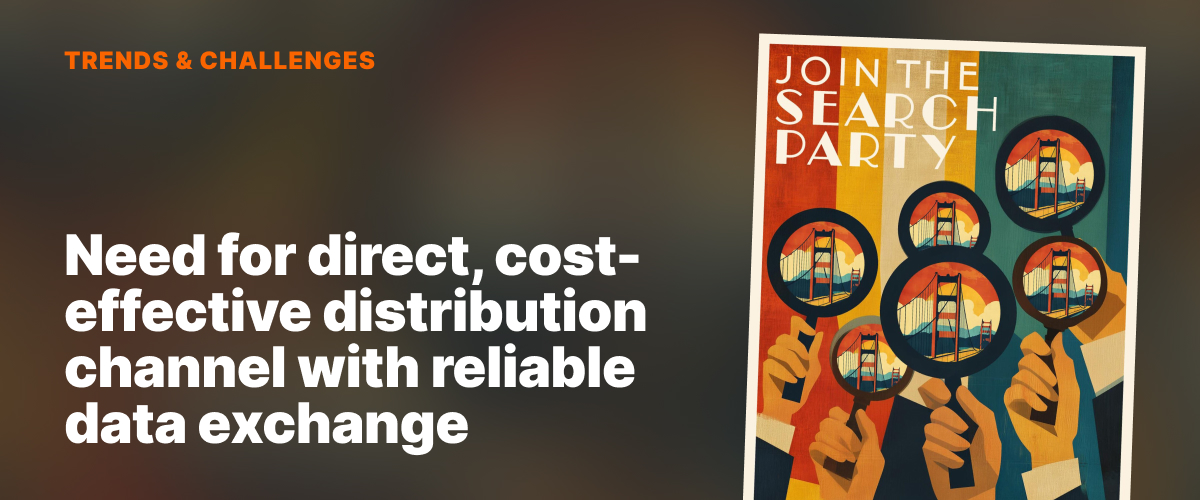
This trend is about the growing need for more specialized, efficient, and cost-effective ways to connect supply with demand. Travel companies are actively seeking alternatives to reduce their dependence on dominant search platforms, looking for solutions that offer more control over their distribution costs and customer relationships.
| Current travel tech gaps | Blockchain solutions |
|---|---|
| 🔐 Centralized control of travel data | Decentralized travel marketplace |
| 💸 High distribution costs through intermediaries | Direct peer-to-peer connectivity |
| 🔌 Limited direct connectivity between suppliers and buyers | Shared travel inventory ledger |
| 🔒 Data silos preventing innovation | Open protocols for travel data exchange |
As tourism numbers surge globally, governments are taking a more active role in managing visitor flows and their impact. From Venice's tourist tax to Barcelona's rental restrictions, from Amsterdam's visitor caps to Maui's accommodation regulations – destinations are implementing sophisticated control measures.
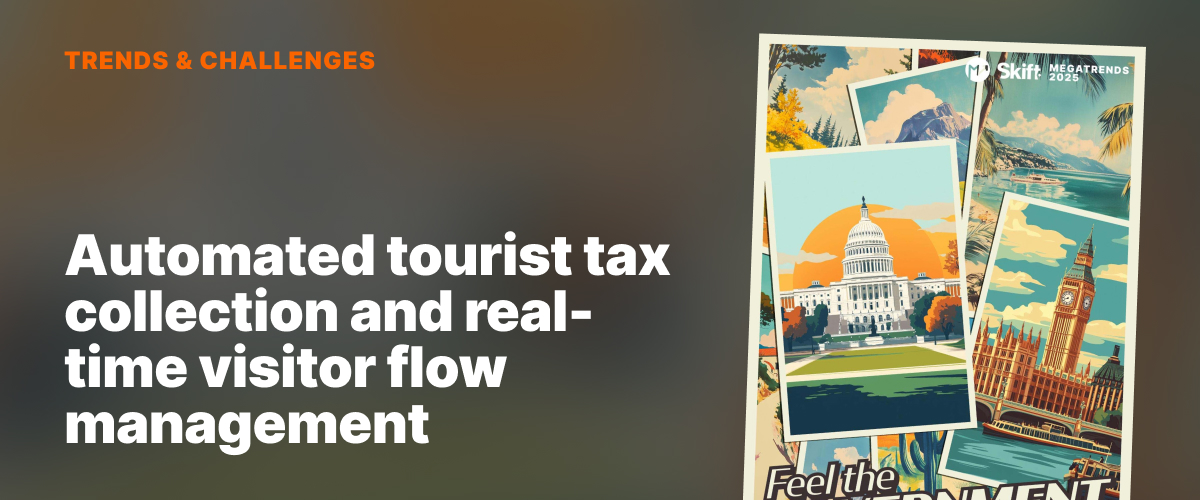
This is one of the ways to introduce more sustainable tourism practices with real-time visitor tracking, automated tax collection, and complex permit systems that current technology struggles to handle efficiently.
| Current travel tech gaps | Blockchain solutions |
|---|---|
| 🔍 Limited real-time visitor tracking | Digital identity systems for tourist tracking |
| 💰 Inefficient tourist tax collection | Automated tourist tax collection via smart contracts |
| 🤝 Complex cross-jurisdiction coordination | Blockchain-based visitor management systems |
| 📝 Manual verification of permits and passes | Digital permitting and reservation systems |
The intersection of entertainment, gaming, and travel is creating entirely new business models in the industry. From esports tournaments driving city-wide bookings to music festivals becoming multi-day travel experiences, the 'play' element reshapes how travel products are packaged and sold.
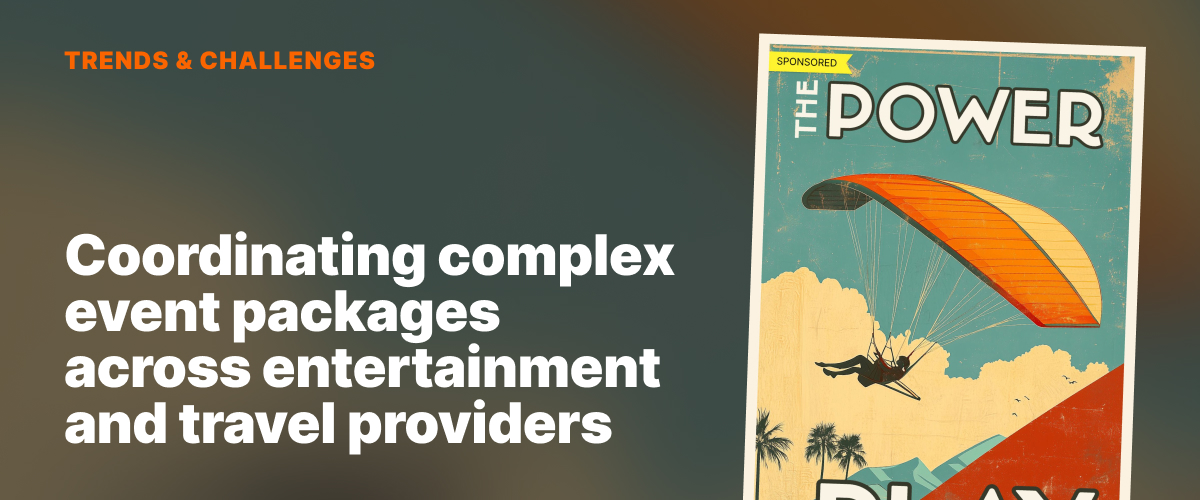
According to Skift research, over 77% of Millennials are willing to pay premium prices for entertainment-centered trips. This represents a fundamental shift in travel product creation – moving from static offerings to dynamic, experience-driven packages that require new levels of coordination between entertainment providers, venues, and travel services.
| Current travel tech gaps | Blockchain solutions |
|---|---|
| 🎮 Disconnected booking systems for events/activities | NFT-based experience packages |
| 🤝 Limited cross-industry collaboration tools | Smart contracts for multi-vendor revenue sharing |
| 💰 Complex revenue sharing in partnerships | Decentralized collaboration platforms |
| 📊 Difficulty tracking multi-vendor experiences | Tokenized gaming-travel rewards systems |
While the initial AI hype focused on chatbots and content generation, 2025 marks the year when AI begins transforming core travel operations. The focus is shifting from customer-facing applications to backend processes: inventory management, dynamic packaging, fraud detection, and predictive analytics.
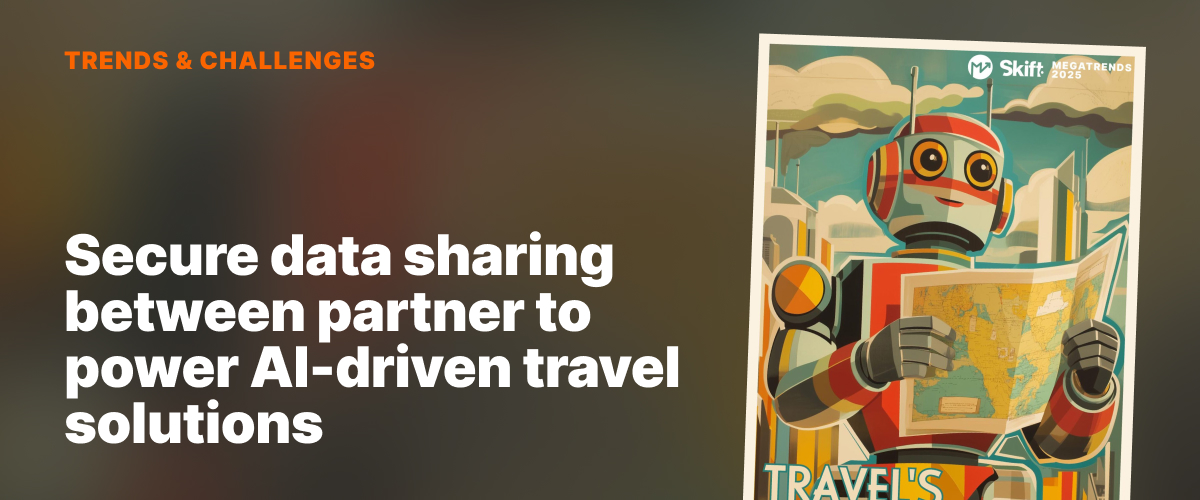
However, AI's effectiveness depends entirely on access to quality data and the ability to securely share information across multiple travel partners – creating new technical requirements for the industry's infrastructure.
| Current travel tech gaps | Blockchain solutions |
|---|---|
| 🔒 Data privacy and security concerns | Secure data-sharing protocols |
| 📊 Limited access to quality training data | Decentralized AI training datasets |
| 🔐 Siloed customer information | Self-sovereign identity management |
| ⚠️ Trust issues with AI recommendations | Transparent AI decision tracking |
Airlines are no longer just transportation providers – they have become sophisticated digital enterprises. They focus on using data to create personalized experiences, optimize operations, and meet sustainability goals.
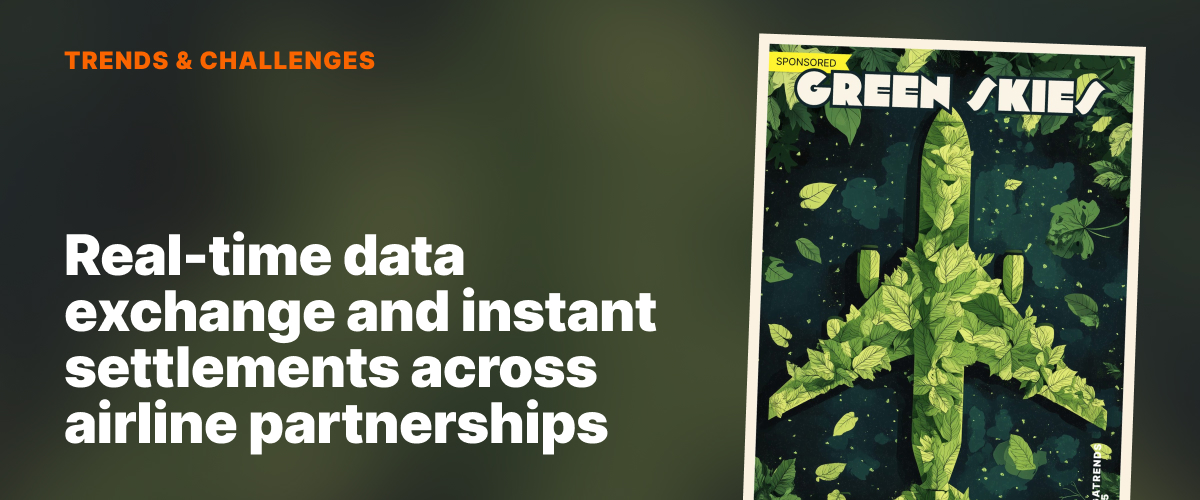
This transformation requires new capabilities in data sharing, customer identity management, and cross-partner collaboration, especially for tracking and validating sustainability efforts.
| Current travel tech gaps | Blockchain solutions |
|---|---|
| 🔄 Limited data sharing between airlines | Shared passenger data ledger |
| 🎁 Complex loyalty program partnerships | Interoperable loyalty tokens |
| 💳 Inefficient settlement systems | Real-time settlement systems |
| 🌱 Sustainability tracking challenges | Transparent carbon offset tracking |
| 🔒 Lack of control over outsourced systems | Decentralized reservation platforms |
Looking at the analysis of the megatrends predicted by Skift for 2025 you can see specific technological dependencies. These barriers to innovation prevent the industry from fully capitalizing on emerging opportunities.
Camino Network's 2025 roadmap is aligned with the trends predicted. As a decentralized ledger, it is a single source of truth for all participants for secure and encrypted sharing inventory, verifying identities, or tracking commissions. It eliminates the need for multiple reconciliations and reduces errors that cost the companies and individuals billions annually.
Smart contracts on Camino Network enable automatic execution of complex business rules and instant asset (ticket ↔ payment) exchange in a single transaction, with costs approaching zero.
The Camino Messenger creates a new standard for business communication in travel. Companies worldwide can connect, negotiate, and trade seamlessly through a secure, verifiable channel. It is a complete business communication protocol built specifically for travel industry needs on top of a global travel standard.
Stablecoins boost payment flows in travel. Cross-border settlements that traditionally took weeks or months now happen instantly at minimal cost. This is crucial for everything from influencer commission payments to hotel revenue distribution.
The innovative CLINKS system transforms how travel products can be sold online. A simple URL can trigger complex blockchain transactions, making it possible to sell bundled travel products directly through any digital channel – a social media post, a messaging app, or an email newsletter.
Guided by smart contracts, all the processes can be automated, from the purchase to commission distribution.
Digital ID infrastructure ensures compliance and secure data sharing. This foundation, combined with AI integration capabilities, opens new possibilities for personalization and fraud prevention without compromising privacy or security.
Each of these innovations brings the 2025 travel trends closer to reality. More importantly, they make these trends scalable across the globe and different travel verticals: small tour operators in Thailand or major airlines in Europe.
These and other solutions planned in the roadmap of Camino Network for 2025 provide the technological foundation needed to participate in the next generation of travel distribution and operations.
If your company is interested in exploring this new digital ecosystem and new tools that make top travel trends tangible and scalable, here is what you can do: